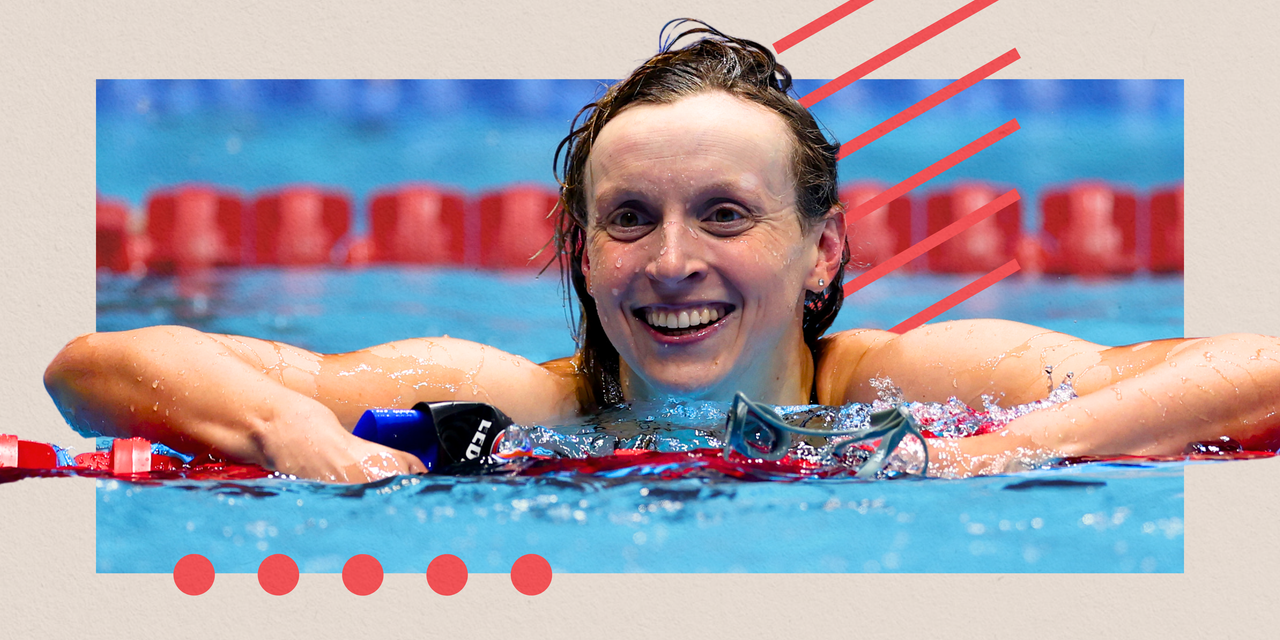Katie Ledecky Has POTS: Understanding The Condition And Her Journey
Katie Ledecky, one of the most celebrated swimmers in the world, has opened up about her diagnosis of Postural Orthostatic Tachycardia Syndrome (POTS). As an athlete who has broken numerous records and won multiple Olympic medals, her revelation has brought attention to this often misunderstood condition. POTS is a disorder that affects the autonomic nervous system, causing a variety of symptoms that can severely impact daily life. In this article, we will delve into Katie Ledecky's experience with POTS, its symptoms, diagnosis, treatment, and how she continues to inspire others despite the challenges.
Understanding the complexities of POTS is crucial, especially for those who may be experiencing similar symptoms. Katie Ledecky's journey highlights the importance of awareness, proper diagnosis, and effective management strategies. Her story serves as a beacon of hope for others who are navigating life with POTS.
This article aims to provide comprehensive information on Katie Ledecky's battle with POTS, offering insights into her condition and how it has influenced her career and personal life. By exploring her experiences, we can better understand the challenges faced by individuals with POTS and learn how to support them.
Read also:Rockford Reg Star Obituaries A Comprehensive Guide To Remembering And Honoring Lives
Table of Contents
- Biography of Katie Ledecky
- What is POTS?
- Symptoms of POTS
- Diagnosing POTS
- Katie Ledecky's Diagnosis
- Managing POTS
- Treatment Options for POTS
- Lifestyle Changes for POTS
- Building a Support System
- Inspiration and Legacy
Biography of Katie Ledecky
Early Life and Career
Katie Ledecky was born on March 17, 1997, in Washington, D.C., and grew up in Bethesda, Maryland. From a young age, she showed a remarkable talent for swimming, quickly rising through the ranks to become one of the most dominant forces in the sport. Her achievements include 15 Olympic and World Championship gold medals, making her one of the most decorated female swimmers in history.
Biodata
| Full Name | Kathleen Genevieve Ledecky |
|---|---|
| Date of Birth | March 17, 1997 |
| Place of Birth | Washington, D.C. |
| Nationality | American |
| Sport | Swimming |
What is POTS?
Postural Orthostatic Tachycardia Syndrome (POTS) is a disorder characterized by an abnormal increase in heart rate when transitioning from a lying down to a standing position. This condition affects the autonomic nervous system, which regulates involuntary functions such as heart rate, blood pressure, and digestion. POTS can lead to a variety of symptoms that significantly impact daily life, including dizziness, fatigue, and brain fog.
Symptoms of POTS
The symptoms of POTS can vary widely among individuals, but common signs include:
- Rapid heart rate upon standing
- Dizziness or lightheadedness
- Chronic fatigue
- Brain fog and difficulty concentrating
- Headaches
- Nausea
These symptoms can be debilitating, making it difficult for individuals with POTS to perform everyday tasks.
Diagnosing POTS
Diagnosing POTS typically involves a thorough medical evaluation, including a tilt table test, which measures changes in heart rate and blood pressure when the body shifts from lying down to standing. Other diagnostic tools may include electrocardiograms (EKGs) and blood tests to rule out other potential causes of symptoms.
Katie Ledecky's Diagnosis
Katie Ledecky's diagnosis of POTS came after experiencing prolonged fatigue and other symptoms that affected her training and performance. Her openness about living with POTS has helped raise awareness about the condition and encouraged others to seek medical attention if they suspect they might have POTS.
Read also:Recent Arrests In Boise A Comprehensive Analysis
Managing POTS
Lifestyle Adjustments
Managing POTS often requires significant lifestyle adjustments. Individuals with POTS may need to modify their daily routines to accommodate their symptoms, such as increasing fluid and salt intake, wearing compression garments, and practicing stress-reduction techniques.
Treatment Options for POTS
Treatment for POTS can include a combination of medication and non-pharmacological approaches. Medications such as beta-blockers or ivabradine may be prescribed to help regulate heart rate. Non-pharmacological treatments include physical therapy, cognitive-behavioral therapy, and dietary modifications.
Lifestyle Changes for POTS
In addition to medical treatments, lifestyle changes play a crucial role in managing POTS. Regular exercise, tailored to individual capabilities, can help improve symptoms over time. Adequate rest and sleep are also essential for managing fatigue and improving overall well-being.
Building a Support System
Having a strong support system is vital for individuals living with POTS. Family, friends, and healthcare providers can offer emotional support and practical assistance. Joining support groups, either locally or online, can also provide a sense of community and shared experiences.
Inspiration and Legacy
Katie Ledecky's journey with POTS serves as an inspiration to many. Despite the challenges posed by her condition, she continues to compete at the highest levels of her sport. Her resilience and determination remind us that with the right support and strategies, individuals with POTS can lead fulfilling and successful lives.
Conclusion
Katie Ledecky's experience with POTS highlights the importance of awareness, early diagnosis, and effective management strategies. By sharing her story, she has brought attention to a condition that affects many people worldwide. Understanding the symptoms, diagnosis, and treatment options for POTS is essential for supporting those who live with this challenging disorder.
We encourage readers to share this article with others who may benefit from the information provided. If you or someone you know suspects they may have POTS, seek medical advice promptly. Together, we can work towards a future where individuals with POTS receive the care and support they need to thrive.
References:
- National Institutes of Health
- Mayo Clinic
- Postural Orthostatic Tachycardia Syndrome Alliance (POTS-D)


